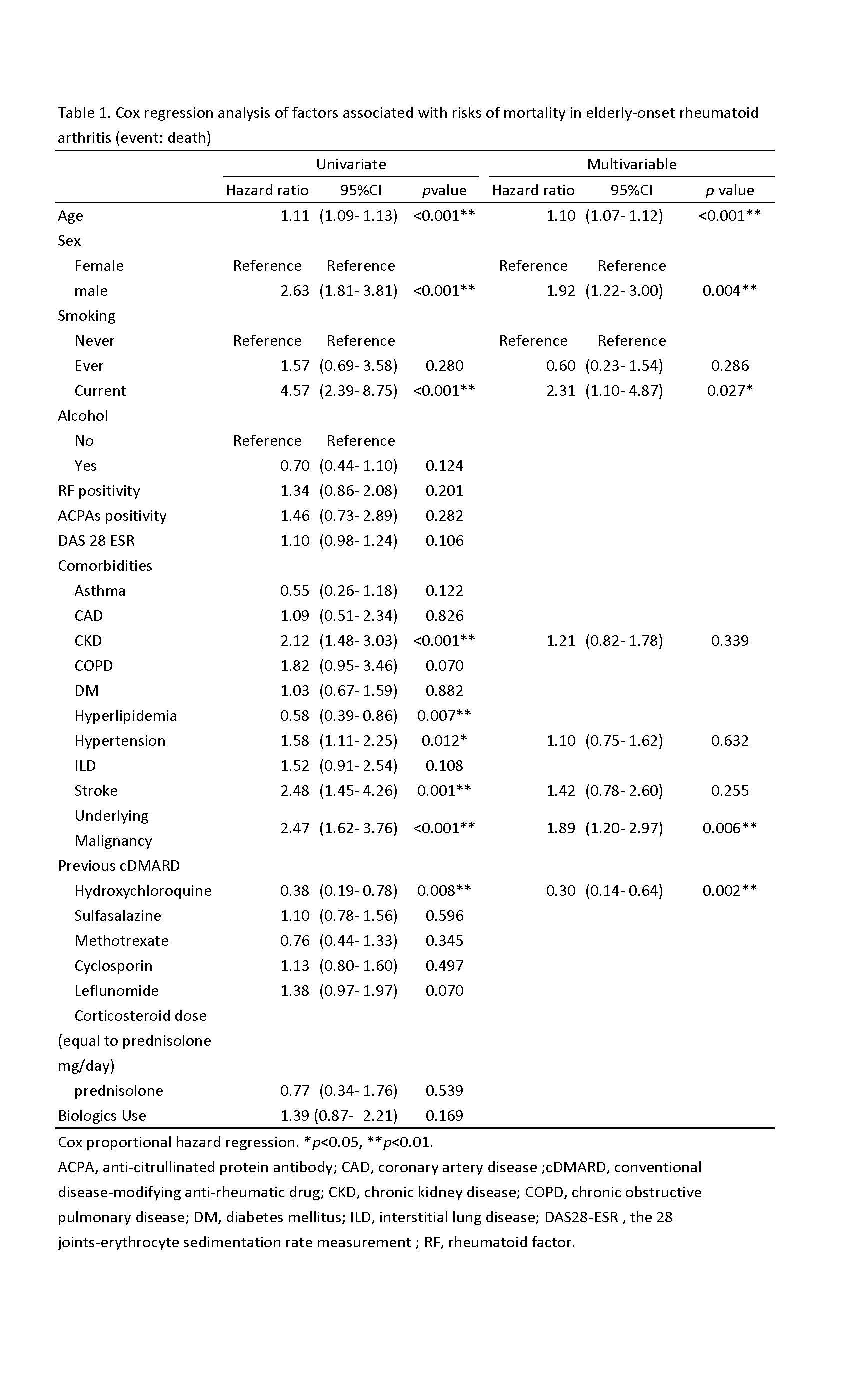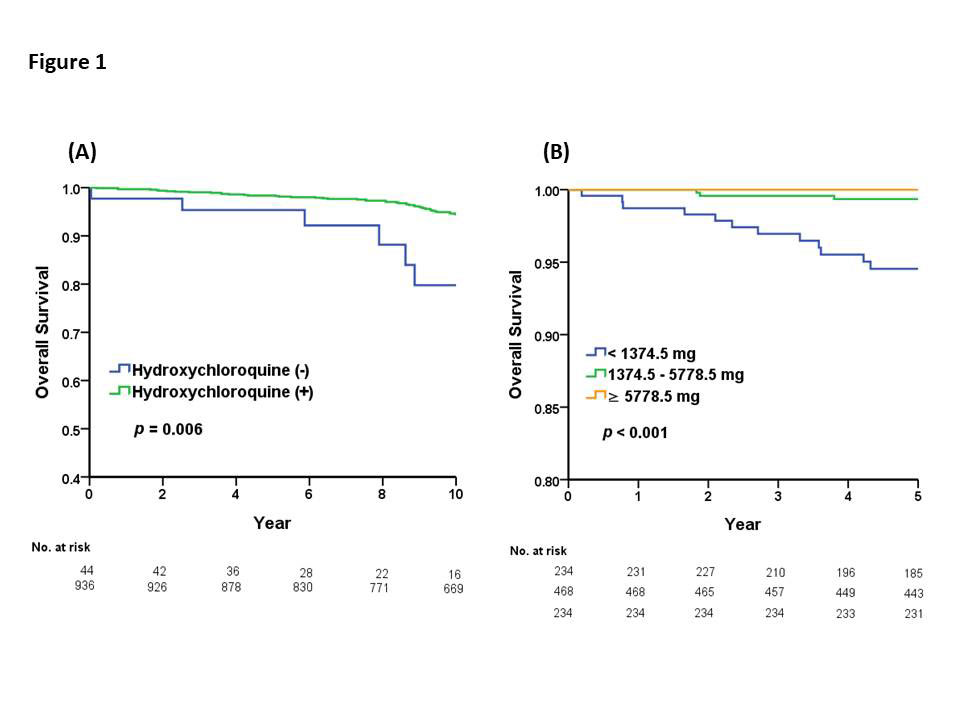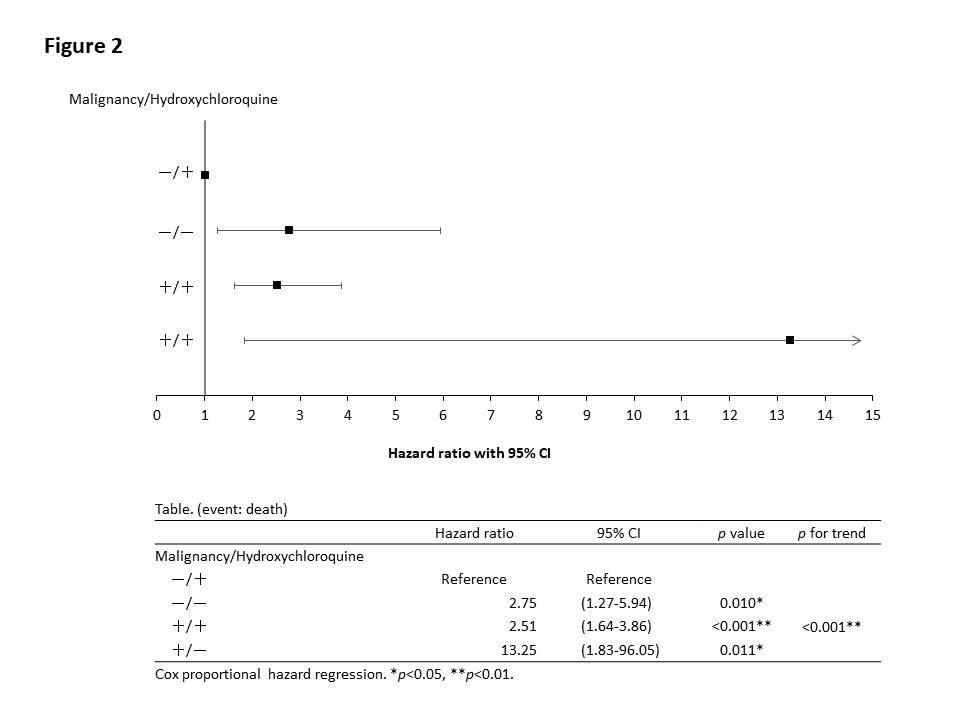Session Information
Session Type: Poster Session A
Session Time: 1:00PM-3:00PM
Background/Purpose: Patients with rheumatoid arthritis (RA) were associated with increased mortality rate. Our study aimed to investigate the risk factors associated with all causes of mortality in patients with elderly-onset rheumatoid arthritis (EORA) receiving conventional, biologic or targeted synthetic disease-modifying anti-rheumatic drugs (cDMARDs, bDMARDs or tsDMARDs).
Methods: Data of EORA patients defined as RA diagnosis age >60 years between Jan, 2007 and June, 2021 were extracted from the Taiwan Rheumatology Association Clinical Electronic Registry (TRACER). To evaluate the association of baseline demographic data, pre-existing comorbidities, all causes of death, antibody titers and positivity status for RF, ACPA or both, DMARD-exposure by cDMARD, bDMARD or tsDMARD with mortality risk among EORA patients, we constructed a multivariable cox regression models to calculate the Hazard ratios (HR) and 95% confidence intervals (CI). Five-year patient survival for EORA were analyzed by Kaplan-Meier curves.
Results: A total of 980 EORA patients were recruited ( survival: 852 and death: 128, respectively ). We found that older age (HR: 1.10, 95% CI: 1.07-1.12, p< 0.001), male sex (HR: 1.92, 95% CI: 1.22-3.00, p=0.004), current smoking (HR: 2.31, 95% CI: 1.10-4.87, p=0.027), and underlying malignancy (HR: 1.89, 95% CI: 1.20-2.97, p=0.006) were significant risks of mortality (Table 1). In contrast, hydroxychloroquine (HCQ) treatment was a protective factor against mortality in patients with EORA (HR: 0.30, 95% CI: 0.14-0.64, p=0.002 & Figure 1A). Moreover, patient with malignancy but no HCQ treatment exhibited the highest mortality risk compared with the counterparts (Figure 2). Patients with a monthly cumulative dose of HCQ < 1374.5 mg exhibited the lowest survival rate in comparison to patients with that 1374.5-5778.5mg and ≧5778.5mg (Figure 1B).
Conclusion: Our study identified risks of mortality in patients with EORA. Whether HCQ protects patients with malignancy from deleterious outcome deserves further investigation.
Pairwise comparison (A) hydroxychloroquine vs. non-hydroxychloroquine group, p=0.006; (B) monthly cumulative dose of hydroxychloroquine ≧5778.5mg vs. 5778.5_1374.5mg vs. <1374.5mg, p<0.001.
To cite this abstract in AMA style:
Lin C, Huang W, Chen Y, Chen Y. Risks of Mortality in Elderly-onset Rheumatoid Arthritis: Analysis from the TRA Clinical Electronic Registry [abstract]. Arthritis Rheumatol. 2022; 74 (suppl 9). https://acrabstracts.org/abstract/risks-of-mortality-in-elderly-onset-rheumatoid-arthritis-analysis-from-the-tra-clinical-electronic-registry/. Accessed .« Back to ACR Convergence 2022
ACR Meeting Abstracts - https://acrabstracts.org/abstract/risks-of-mortality-in-elderly-onset-rheumatoid-arthritis-analysis-from-the-tra-clinical-electronic-registry/



